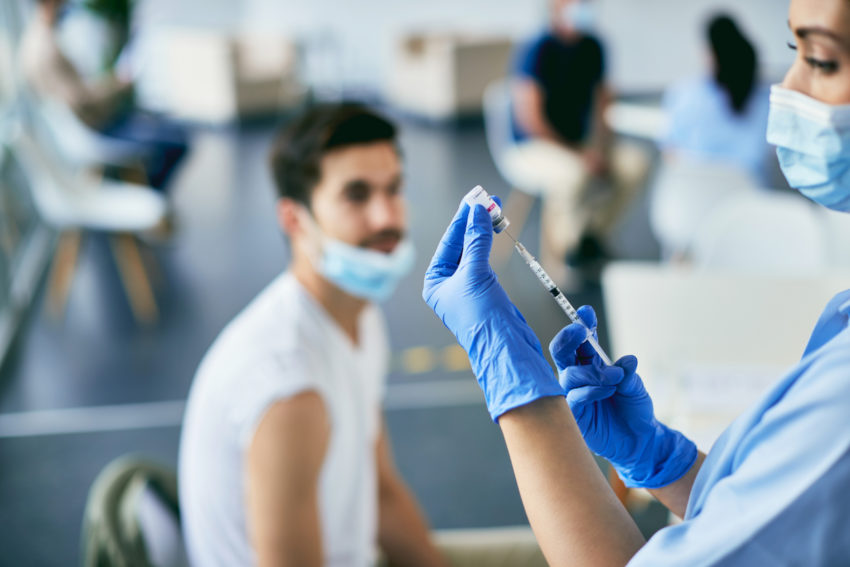
Share On Social!
As the COVID-19 pandemic continues to spread, public health experts are focusing on addressing concerns with vaccine efficacy and safety for those who remain hesitant.
That’s why the Societal Experts Action Network (SEAN) of the National Academies of Sciences, Engineering, and Medicine has put together a toolkit of communication strategies for people who are unsure about the vaccine, parents who are thinking of vaccinating their children, and strategies for engaging with specific communities, such as Latinos.
“In a rapidly evolving situation, where new evidence is continually emerging, state and local decision makers must be ready to frequently adjust and adapt their communication and messaging strategies to meet public needs,” write the authors of the toolkit, Emily Brunson, Robert Chialdini, Kasisomayajula Viswanath, and Donald Berwick.
Let’s take a look at the communication strategies
1. Strategies for Vaccine Unsure Individuals
SEAN recommends several different methods to connect with people who are unsure about the vaccine in order to build their confidence.
They focus on establishing trust and respect while stating the facts.
When communicating with people who are unvaccinated, SEAN recommend the following tactics:
- Use new, personally relevant, and salient information to influence change. Highlight new events or evidence to urge a change in vaccination status without derogating people’s previous decision to avoid vaccination.
- Identify and target people’s reference groups. Use the fact that people are influenced by those they relate to in providing information about vaccination.
- Use trend information. Show data from three or more points in time to highlight changes in vaccination rates among people’s reference groups.
- Use trusted messengers. Use the fact that people are more likely to respond if someone they trust delivers a message about vaccination.
- Tackle misinformation and disinformation. Target false “information” to help build vaccine confidence.
The toolkit also indicates the demographic breakdown of those who remain unvaccinated.
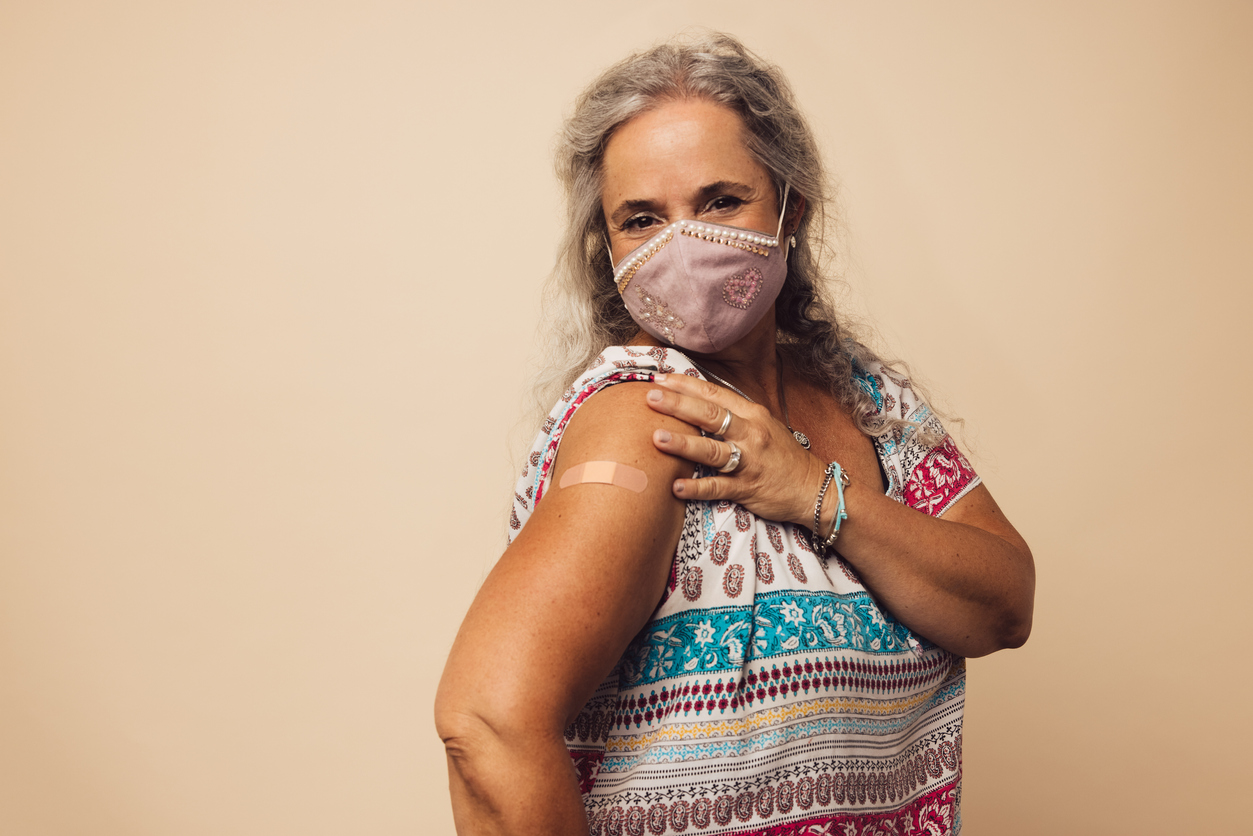
“As of September 2021, Republicans, white evangelicals, rural residents, younger adults, those without college degrees, and adults without health insurance lagged in vaccine uptake. Additionally, despite a narrowing of gaps among vaccinated people by race and ethnicity, White people continue to be vaccinated at higher rates than either Black or Hispanic people,” according to the toolkit.
In fact, Latinos are still making up a lower percentage of those getting vaccinated in many states.
That’s why building confidence is important.
2. Strategies for Communicating with Parents
As the FDA is meeting to approve vaccines for children younger than 12, some parents may want to know more about the safety of vaccinating their children.
SEAN recommends the following strategies to help parents feel confident in their decision to vaccinate their children:
- Emphasize safety and efficacy. To alleviate parents’ concerns, emphasize the rigorous clinical process of safety, efficacy, and continued monitoring of the approved vaccines that are available for children.
- Encourage parent-provider communication and primary care provider recommendations. Most children, especially young children, visit primary care providers on a regular basis, and these health care providers are a highly trusted group; messages from primary care providers about vaccines’ safety and efficacy may be important for parents.
- Leverage social networks to influence parents’ vaccination decisions. Parents are influenced by their broad trusted social network connections; targeting members of those networks, especially the most influential ones, can help encourage parents to vaccinate their children.
Vaccinating children is especially important for Latino families, as the risk for serious infection and death may be higher for Latino children.
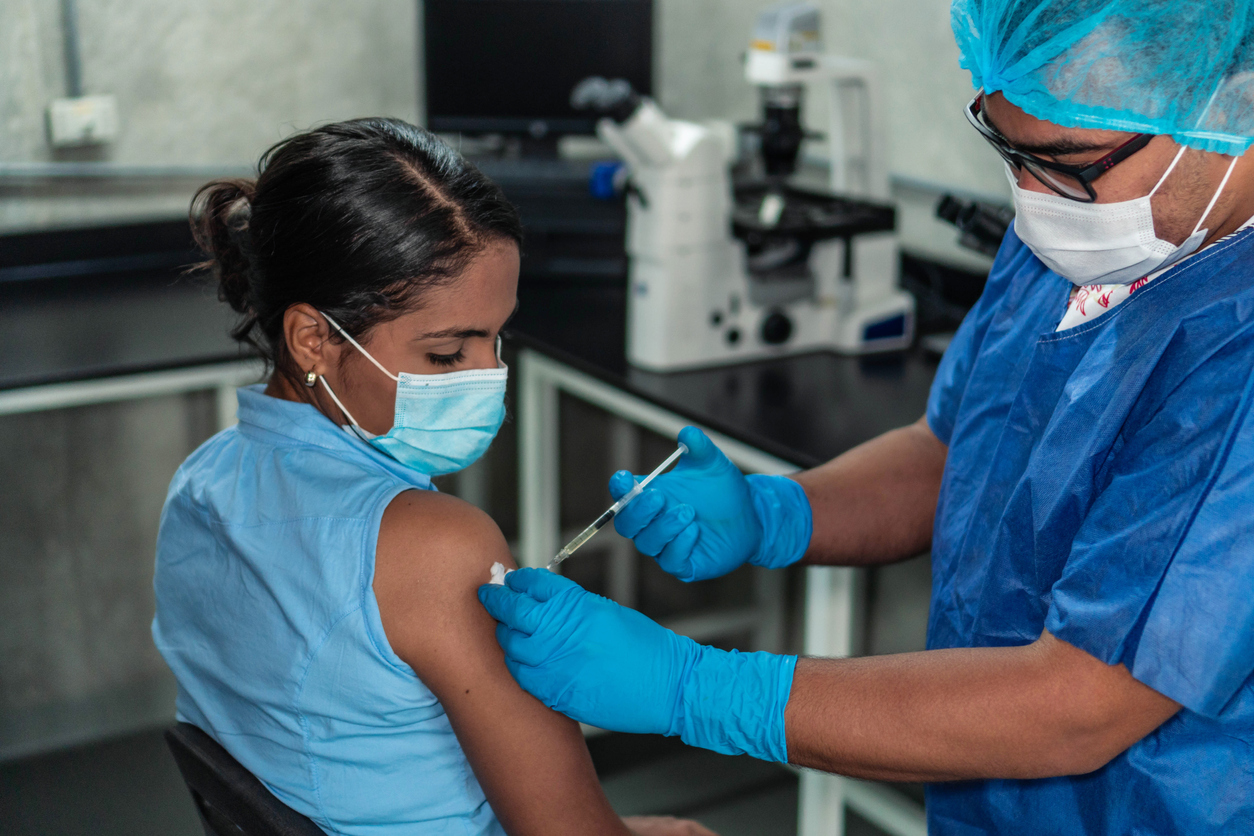
Latino children, who disproportionately experience medical conditions like diabetes and obesity, are at a high risk for severe COVID-19 infection.
“Latino children and young adults account for over 40% of the COVID-19 deaths among people ages 0-24,” according to the CDC.
Latino children are more likely to spread COVID-19 among families that live in multi-generational households or have family members working front line, high-risk service jobs.
When authorized, vaccinating children can make a big impact in preventing the spread of COVID-19 among Latino communities, which have felt a huge burden from the virus over the last year/
3. Strategies to Engage Communities to Build Vaccine Confidence
Because some groups are less likely to be vaccinated than others, it can be helpful to engage directly with the communities who are hesitant to ensure their specific needs are met.
Latino, Black, and rural communities tend to be more distrustful of government and healthcare.
SEAN recommends these strategies to engage communities about the vaccine:
- Form partnerships with community organizations that have strong existing community relationships and are close to their audiences.
- Engage with and center the voices and perspectives of trusted messengers who have roots in the community using dialogue-based interventions, including social mobilization and engagement.
- Engage across multiple, accessible channels tailored for different vulnerable populations. Examples include catering for those who cannot attend meetings, those who have limited broadband service, those who speak languages other than English, and those who cannot use written text.
- Begin or continue working toward racial equity by acknowledging existing inequities and framing the COVID-19 vaccines as one of several tools that can help advance equity in communities most affected by the pandemic. Reassure those communities that this type of work will continue beyond the pandemic.
- Allow and encourage public ownership of COVID-19 vaccination through public oversight and community engagement as a way of building trust and confidence.
- Measure and communicate inequities in vaccine distribution as a way of identifying and addressing these inequities.
This ties into the importance of cultural humility as a method to build vaccine confidence.
Cultural humility means being aware of how history and culture intersect to affect people’s beliefs, especially when it comes to historical trauma and wrongdoing, according to the Hogg Foundation for Mental Health.
“It is not enough to think about one’s own values, beliefs, and social position within the context of the present moment. In order to practice true cultural humility, a person must also be aware of and sensitive to historic realities like legacies of violence and oppression against certain groups of people,” according to the Hogg Foundation for Mental Health.
4. Producing Vaccine Communication on Efficacy and Effectiveness
When it comes to producing and design communication tools that uplift vaccine efficacy and effectiveness, we can use tactics to make them clear and persuasive to help reach our intended audiences.
SEAN recommends these four steps for producing communication tools:
- Identify the outcomes most relevant to recipients’ decisions through community partnerships.
- Summarize the evidence regarding those outcomes.
- Identify the most relevant subset of evidence.
- Evaluate messages before dissemination.
SEAN recommends these five steps for designing vaccine communication tools:
- Define terms clearly
- Use numbers to describe quantities.
- Compare options clearly
- Present all relevant outcomes.
- Communicate uncertainty and anticipate changes.
“It is important that communication efforts continue to maintain positive attitudes toward vaccination among those who are not vaccinated. In addition, highlighting bipartisan support for COVID-19-related measures could be an effective strategy to reduce polarization and promote uptake of public health mitigation measures,” according to the toolkit.
What Can You Do to Promote Vaccine Confidence?
Vaccine misinformation is prominent and often targets Latinos.
Stay informed by learning the facts about COVID-19 and the vaccine.
One resource you can use is Salud America!’s Latino COVID-19 Vaccine “Change of Heart” Bilingual Storytelling Campaign. The campaign shares the stories of real Latinos who overcame misinformation, got the vaccine, reconnected with family, and are helping end the pandemic.
Jesus Larralde is one of the Latinos who was unsure about the vaccine initially. He was worried it would make him sick and was nervous about the side effects.
But after learning more about the vaccine, he decided to get it so she could safely spend time with his family, including his immunocompromised father. Now he wants others to get vaccinated, too.
You can share Jesus’s story with your friends, family, and colleagues!
By The Numbers
142
Percent
Expected rise in Latino cancer cases in coming years

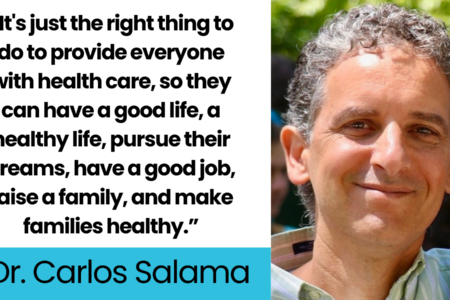

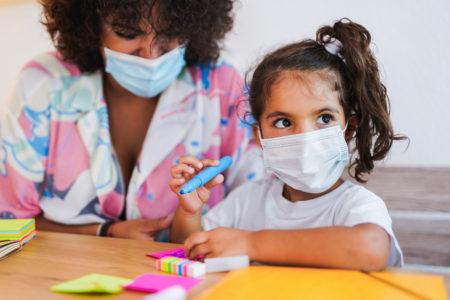
[…] The pandemic is another chapter in the bitter story of American racism and inequality. Black and Latinx people are being infected and are dying at much higher rates than white Americans. Many people of […]
[…] coronavirus has killed over 61,000 Latinos in America according to the CDC, accounting for over 18.2% of the total COVID deaths in the […]
[…] Whereas Hispanics make up 11% of D.C.’s inhabitants, they signify 19% of the COVID cases, and 14% of the deaths. Equally, 46% of D.C.’s residents are Black, they usually make up an alarming 75% […]
[…] and historical mistreatment. According to the U.S. Centers for Disease Control and Prevention, Latino and Black American communities are three times more likely to become infected with […]
[…] Covid pandemic has hit the Latino community particularly hard, and data from the nonprofit health equity advocacy group Salud America! shows Latinos lead in the 0-24 age […]
[…] the pandemic, Latinos took major blows, both in terms of COVID-19 cases and also from the economic recession under former President Donald Trump. Nearly half (49%) of […]
[…] the positive trend, the harm may have already been done. The pandemic has disproportionately impacted Latino communities. Reuters reported that election-related or political disinformation that […]
[…] pesar de la tendencia positiva, es posible que el daño ya esté hecho. La pandemia ha impactado desproporcionadamente Comunidades latinas. Reuters informó que la desinformación política o relacionada con las […]
[…] residentes blancos muestran una tasa mucho más baja con 10 muertes por cada 100,000 habitantes(8 9) . Los afroestadounidenses por su parte, denuncian subsistemas de salud que les segregan […]
[…] https://salud-america.org/coronavirus-case-rates-and-death-rates-for-latinos-in-the-united-states/ […]
[…] https://salud-america.org/coronavirus-case-rates-and-death-rates-for-latinos-in-the-united-states/ […]
[…] communities have the second-highest number of COVID-19 cases in the U.S. They’re also more likely to become hospitalized and die from the disease than other […]
[…] total, around 160,000 Latinos were killed by COVID-19. This accounts for 16% of the 1 million deaths in the country. The […]